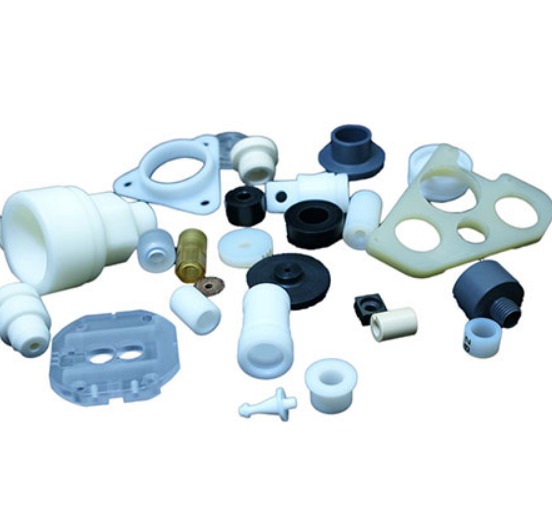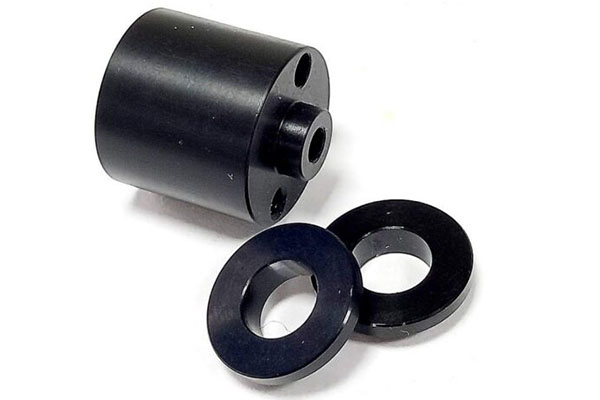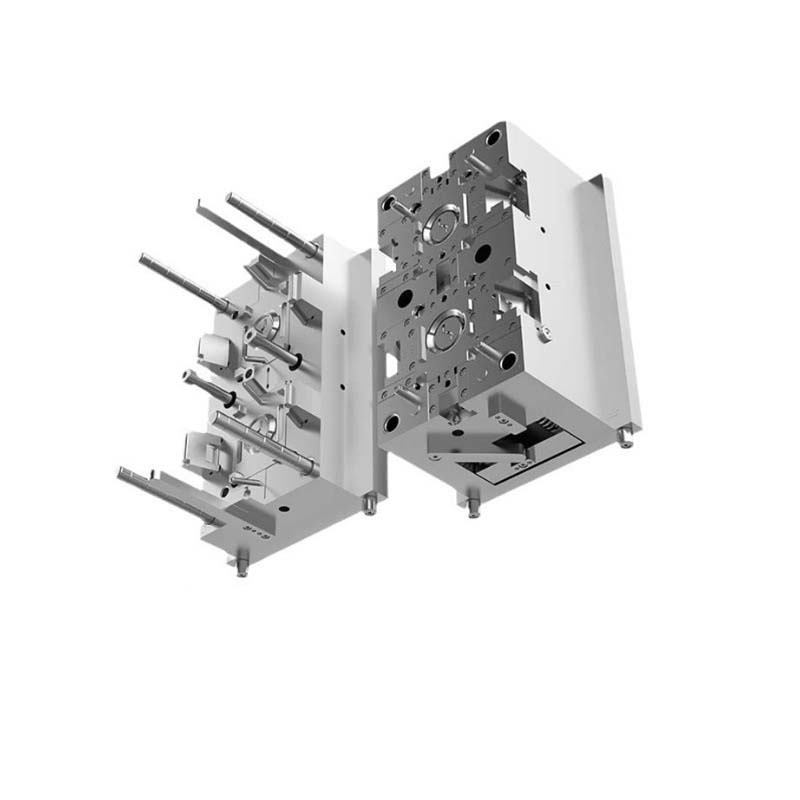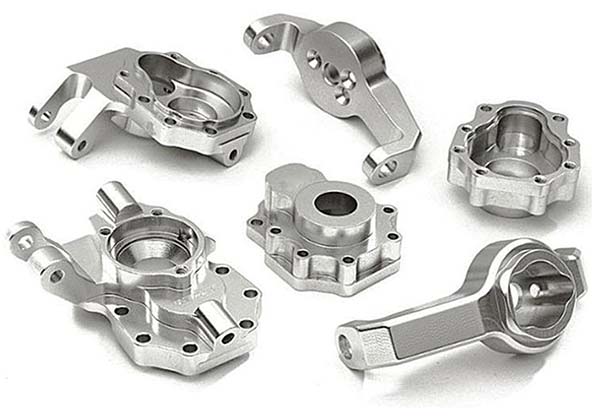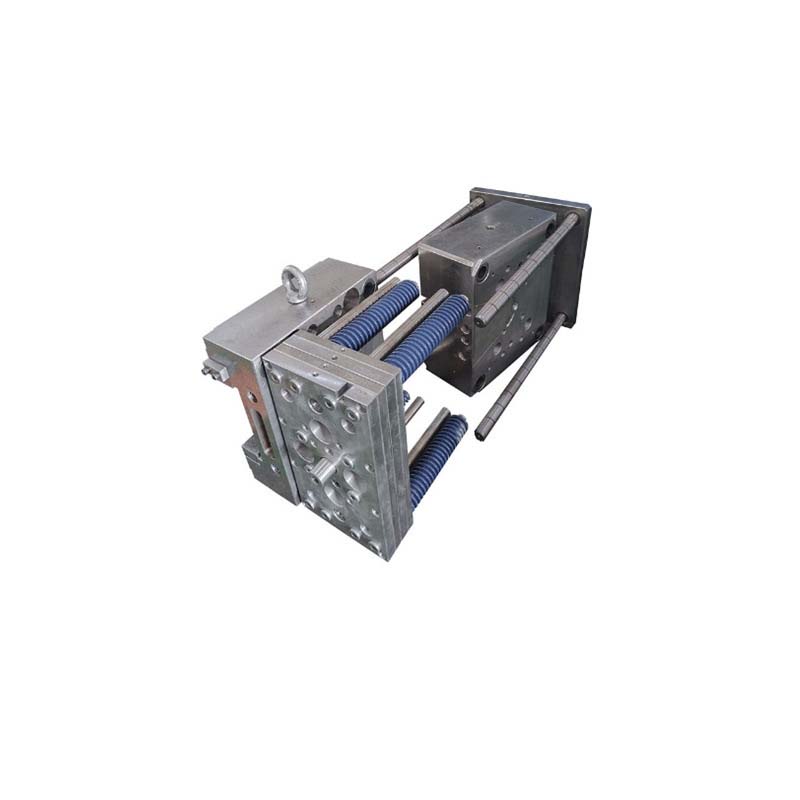Introduction
What is China Precision Mold?
In the realm of modern manufacturing, China Precision Mold has emerged as a cornerstone, playing a pivotal role in shaping the production landscape across a multitude of industries. A precision mold is a specialized tool crafted with meticulous attention to detail, designed to produce parts and components with extremely tight tolerances, often within the micron range. These molds are the unsung heroes behind the scenes, enabling the mass production of high - quality products that we encounter in our daily lives, from the smallest electronic components to large - scale automotive parts.
China has become a global powerhouse in precision mold manufacturing. With a combination of advanced manufacturing technologies, a large pool of skilled labor, and a vibrant ecosystem of suppliers, the country has managed to capture a significant share of the international market. In 2024, the Chinese precision mold industry was valued at over $X billion and has been growing steadily at an annual growth rate of around Y%. This growth is driven by the increasing demand for high - precision products in industries such as automotive, electronics, medical devices, and aerospace.
For example, in the automotive industry, China Precision Molds are used to manufacture engine components, transmission parts, and body panels. The precision of these molds ensures that the parts fit together perfectly, enhancing the performance and safety of the vehicles. In the electronics sector, they are crucial for producing components like smartphone casings, integrated circuit packages, and connectors, where even the slightest deviation in dimensions can lead to malfunctions.
The Landscape of China Precision Mold
Market Overview
The Chinese precision mold market has been on a remarkable growth trajectory. In 2023, the market size of China's precision molds reached approximately $15 billion, and it is projected to grow at a compound annual growth rate (CAGR) of around 8% from 2024 - 2030. This growth rate is higher than the global average, which positions China as a key growth engine in the global precision mold industry.
China's share in the global precision mold market has been steadily increasing. Currently, it accounts for nearly 30% of the global market share, second only to a few developed countries in terms of production volume and technological sophistication. The country's rise in the global market is attributed to its complete industrial chain, which includes a wide range of mold - related industries such as raw material production, mold design, manufacturing, and after - sales services.
Looking ahead, the market trends indicate a continued upward swing. The increasing demand for high - end manufacturing in China, especially in the emerging fields of new energy vehicles, 5G communication equipment, and high - performance medical devices, will drive the growth of the precision mold market. For example, the new energy vehicle industry in China is booming, with the production of electric vehicles increasing by 50% in 2023 compared to the previous year. Each electric vehicle requires a large number of precision molds for components like battery casings, motor parts, and vehicle body structures, thus fueling the demand for precision molds.
Key Players
China is home to a diverse range of precision mold manufacturers, each with its own unique strengths and market presence. Here are some of the leading companies:
| Company Name | Business Scope | Competitive Advantages | Market Share |
| XYZ Mold Co., Ltd. | Specializes in plastic injection molds for the electronics and automotive industries, producing components such as smartphone frames and automotive interior parts. | Advanced CAD/CAM technology, a team of experienced engineers, and high - quality post - sales service. | Approximately 8% in the domestic market for plastic injection molds. |
| ABC Precision Manufacturing | Focuses on die - casting molds, serving industries like aerospace and high - speed rail. Their products include engine components for aircraft and key parts for high - speed rail trains. | State - of - the - art die - casting equipment, strict quality control systems, and close cooperation with research institutions for continuous innovation. | Around 6% in the die - casting mold segment in China. |
| DEF Mold Group | Deals with a wide variety of molds, from stamping molds for household appliances to precision molds for medical devices. They produce stamped parts for refrigerators and precision components for surgical instruments. | Large - scale production capacity, a wide customer base both domestically and internationally, and a reputation for reliability. | About 5% in the overall precision mold market in China. |
These leading players not only dominate the domestic market but are also increasingly making inroads into the international market, competing with established global players in terms of quality, price, and innovation.
Precision Mold Manufacturing Process
Design Phase
The design phase is the foundation of China Precision Mold production, determining the functionality, quality, and cost - effectiveness of the final product. Engineers in China typically use advanced computer - aided design (CAD) software such as SolidWorks, UG NX, and CATIA. These software programs allow for the creation of highly detailed 3D models of the mold, with the ability to simulate the molding process, analyze potential issues, and make adjustments before moving to the manufacturing stage.
When designing a precision mold, several critical factors need to be considered. Material selection is crucial. For example, if the mold is for injection - molding plastic parts, the shrinkage rate of the plastic material must be accurately accounted for in the design. Different plastics, such as ABS, PP, and PC, have varying shrinkage rates. ABS typically has a shrinkage rate of around 0.4 - 0.9%, while PP has a higher shrinkage rate of 1.0 - 2.5%. By accurately factoring in these rates, the mold can be designed to produce parts with the correct dimensions.
Tolerance requirements also play a significant role. In high - precision molds, tolerances can be as tight as ±0.001 mm. For instance, in the production of molds for semiconductor components, where even the slightest deviation can lead to product failure, extremely tight tolerances are non - negotiable. The design must incorporate features to ensure that these tolerances can be maintained during the manufacturing process, such as using high - precision machining techniques and appropriate cooling systems.
Let's take the example of a mold design for a smartphone camera lens housing. The design process begins with a detailed CAD model. The engineer first considers the material of the lens housing, which is usually a high - performance plastic like polycarbonate for its excellent optical properties and heat resistance. The shrinkage rate of polycarbonate, around 0.5 - 0.7%, is factored into the design. The tolerance for the inner diameter of the lens housing, which holds the lens, might be set at ±0.002 mm to ensure a perfect fit for the lens. Through multiple simulations using the CAD software, the engineer optimizes the mold design, including the layout of the cavities, the position of the gates for plastic injection, and the cooling channels to prevent warping and ensure dimensional accuracy.
Material Selection
The choice of materials in China Precision Mold manufacturing is a decision that can significantly impact the performance, durability, and cost of the mold. Steel is one of the most commonly used materials in precision mold making. Different types of steel offer unique properties. For example, P20 steel is a pre - hardened plastic mold steel with good machinability and polishing properties. It is widely used in the production of molds for general plastic products, such as household appliance parts. Its hardness typically ranges from 28 - 34 HRC (Rockwell Hardness Scale), making it suitable for molds that require moderate wear resistance and dimensional stability.
Alloys are also popular choices. For instance, H13 hot - work tool steel, an alloy containing elements like chromium, molybdenum, and vanadium, is well - known for its high heat - resistance, toughness, and wear resistance. It is often used in die - casting molds for aluminum and magnesium alloys. In die - casting, the mold is exposed to high temperatures and high - pressure molten metals. H13 steel can withstand these harsh conditions, withstanding temperatures up to around 550°C without significant loss of mechanical properties.
The following table compares the properties and typical applications of some common mold materials:
| Material | Hardness (HRC) | Heat Resistance (°C) | Wear Resistance | Typical Applications |
| P20 Steel | 28 - 34 | Up to 300 | Moderate | General plastic molds (e.g., household appliance parts) |
| H13 Steel | 47 - 52 | Up to 550 | High | Die - casting molds for aluminum and magnesium alloys |
| Aluminum Alloys | 90 - 150 HB (Brinell Hardness) | Up to 250 | Moderate | Molds for low - volume production or where weight is a concern (e.g., some prototype molds) |
When choosing a material, manufacturers need to consider the specific requirements of the mold. If the mold is for a high - volume production of a product with tight tolerance requirements and long - term use, a more expensive but high - performance material like H13 steel might be the best choice. On the other hand, for a low - volume production of a simple plastic product, a more cost - effective option like P20 steel could be sufficient.
Machining Operations
CNC Machining: Computer Numerical Control (CNC) machining is a cornerstone of precision mold manufacturing in China. The principle behind CNC machining is the use of computer - controlled programs to operate machine tools. These programs are generated from the 3D models created in the design phase. For example, a CNC milling machine can precisely cut and shape the mold material according to the programmed instructions. It can achieve high levels of accuracy, often within the range of ±0.005 mm. One of the key advantages of CNC machining is its ability to produce complex shapes with high repeatability. In the production of a multi - cavity plastic injection mold, CNC machining can ensure that each cavity is identical in size and shape, which is crucial for consistent product quality during mass production.
Electrical Discharge Machining (EDM): EDM is another important machining operation, especially for molds with intricate details and hard materials. The EDM process works by creating a series of electrical discharges between an electrode and the workpiece in a dielectric fluid. These discharges erode the material from the workpiece, gradually shaping it into the desired form. EDM can achieve extremely high precision, down to ±0.001 mm. It is particularly useful for creating sharp corners, fine details, and cavities in molds made of hard steels or alloys that are difficult to machine using traditional methods. For example, in the production of molds for high - precision watch components, EDM can be used to create the intricate patterns and tiny holes with the required precision.
Wire EDM: This is a specialized form of EDM. In wire EDM, a thin wire (usually made of brass or tungsten) is used as the electrode. The wire is fed through the workpiece, and electrical discharges between the wire and the workpiece cut the material. Wire EDM is ideal for creating parts with complex profiles and high - precision internal features, such as the cores and cavities in injection molds. It can achieve tight tolerances, typically within ±0.002 mm. For instance, in the manufacturing of molds for medical device components, wire EDM can be used to create the precise internal channels and shapes required for the proper functioning of the devices.
Yigu Technology's Perspective
As a custom supplier of non - standard plastic and metal products, Yigu Technology sees great potential in the development of the China Precision Mold industry.
In terms of cooperation opportunities, Yigu Technology believes that there are numerous synergies between the non - standard product manufacturing and precision mold industries. For example, in the production of non - standard plastic parts, precision molds are essential for achieving the required shape and dimensional accuracy. By collaborating with precision mold manufacturers, Yigu Technology can ensure that the molds used in its production processes are of the highest quality, leading to better - quality end - products.
Moreover, from a technical perspective, there is significant room for complementarity. Yigu Technology has expertise in non - standard product design and manufacturing processes, while precision mold manufacturers possess in - depth knowledge of mold design and advanced machining techniques. By sharing this knowledge, both parties can innovate and develop more efficient manufacturing solutions. For instance, Yigu Technology's understanding of the unique requirements of non - standard products can help mold manufacturers optimize their mold designs, and in return, the advanced mold - making technologies can enable Yigu Technology to produce more complex and precise non - standard parts.
FAQ
What factors should be considered when choosing a China precision mold manufacturer?
When choosing a China precision mold manufacturer, several crucial factors need consideration. First, production capacity matters. A manufacturer with high - volume production capabilities can meet large - scale orders on time. For example, if you have an order for 10,000 precision molds in a month, the manufacturer should have sufficient equipment and labor to handle it. Second, technical level is key. Look for manufacturers with advanced machining technologies like high - speed CNC machining and precision EDM. Their engineers' expertise in mold design, such as proficiency in using CAD/CAM software, also indicates their technical strength. Third, quality control systems are non - negotiable. A reliable manufacturer will have strict inspection processes at every production stage, from raw material inspection to final product testing. Fourth, price should be reasonable. While it's not advisable to choose solely based on the lowest price, comparing quotes from different manufacturers can help you find a cost - effective option. Finally, service is important. Good after - sales service, quick response to inquiries, and willingness to cooperate on design improvements can enhance the overall experience.
How can I ensure the precision of a custom - made mold?
To ensure the precision of a custom - made mold, start with thorough design communication. Clearly convey your product requirements, including dimensional tolerances, surface finish, and functional needs, to the mold designer. Use 3D models and detailed drawings to avoid misunderstandings. Next, select the right materials. High - quality materials with stable physical properties are essential. For instance, if the mold is for high - temperature applications, choose a heat - resistant alloy. During the processingprocess, closely monitor machining operations. Request regular progress reports from the manufacturer and ensure they are using the correct machining parameters. Finally, quality inspection is crucial. Conduct multiple inspections, including in - process inspections and final inspections. Use precision measuring instruments like coordinate measuring machines (CMMs) to verify the dimensions of the mold.
What is the typical lead time for manufacturing a precision mold in China?
The lead time for manufacturing a precision mold in China varies based on several factors. The complexity of the mold is a major determinant. A simple two - plate plastic injection mold might take 15 - 20 days, while a highly complex multi - cavity mold with intricate details for aerospace components could take 60 - 90 days. Order quantity also plays a role. Larger orders may require more time due to production scheduling and resource allocation. Additionally, the manufacturer's workload at the time of your order can affect the lead time. In general, for an average - complexity precision mold with a normal order quantity, the lead time is typically 25 - 45 days. However, it's always best to discuss the specific lead time with the manufacturer during the quotation stage.
